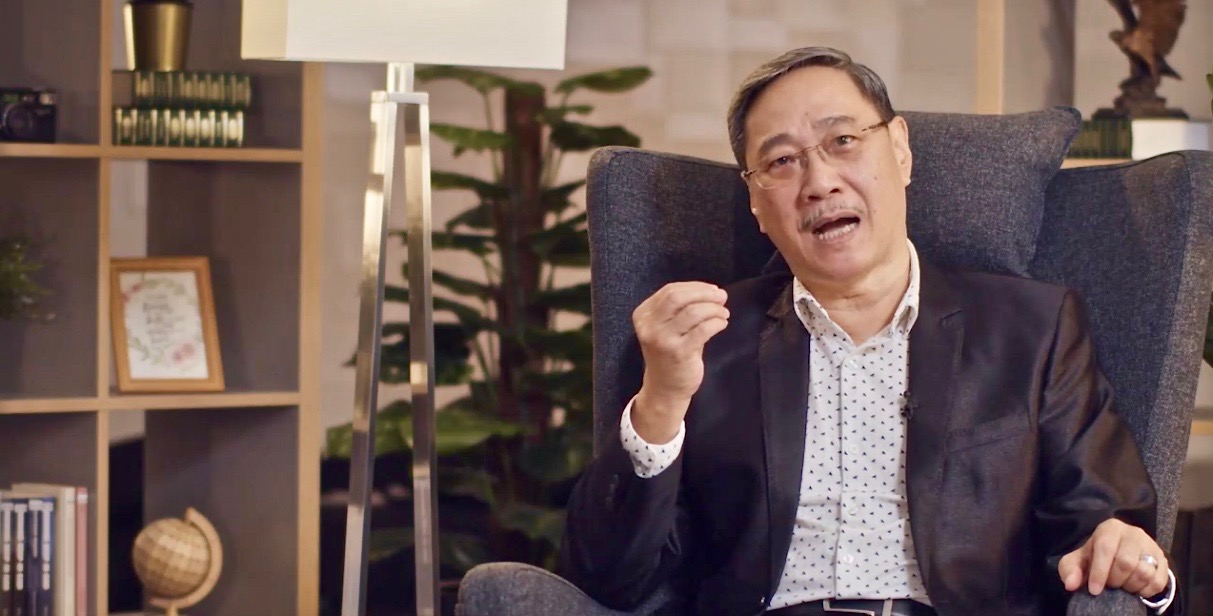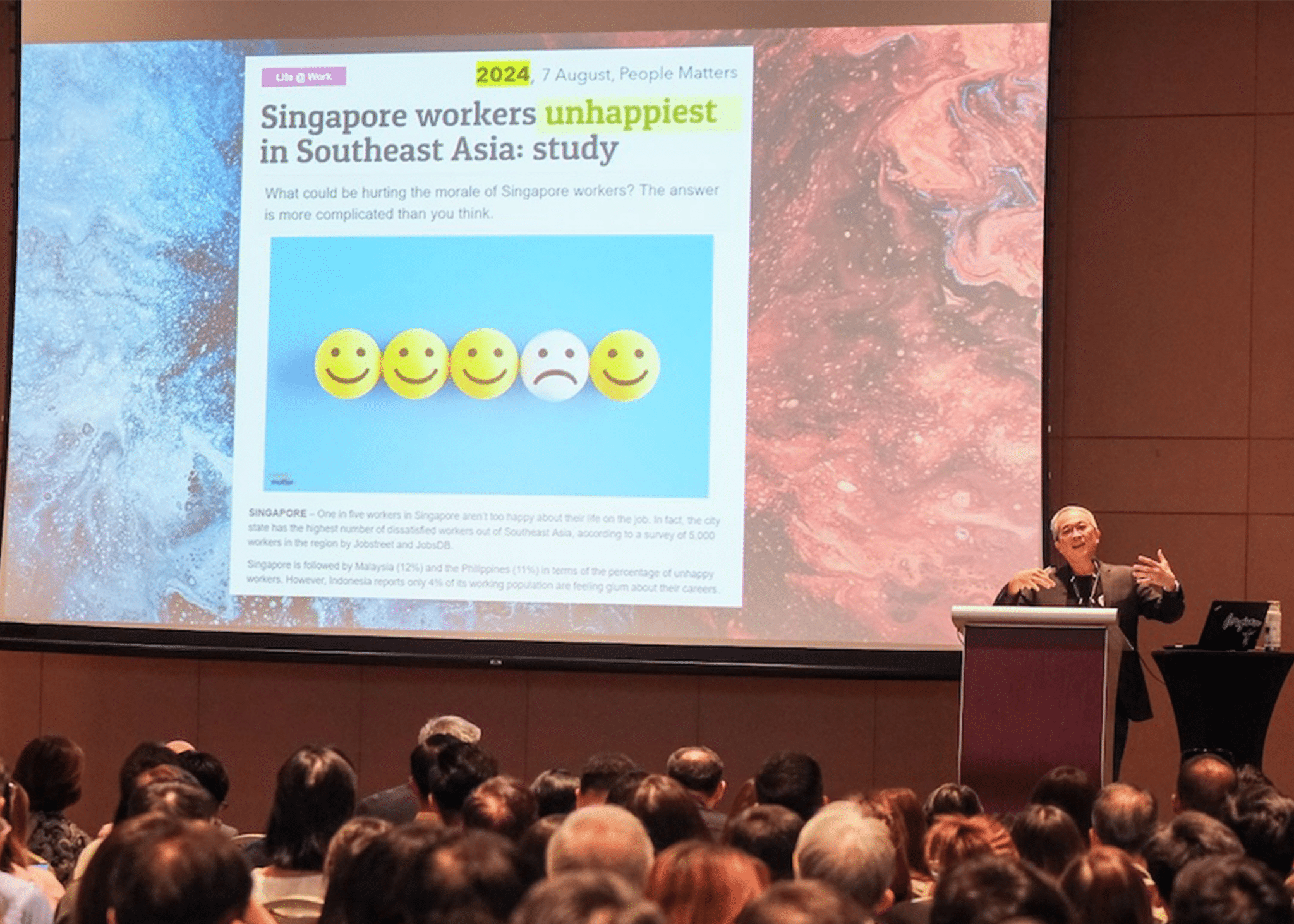It takes work to rest: Reverend Edmund Chan on the “strange principle” of rest during Covid-19
by Janice Tai // September 5, 2020, 2:01 pm

"Why is it that, for many of us, our impressive accomplishments, unique abilities and enviable influence still leave a hole in our soul?” asked Rev Edmund Chan, who pointed out seven signs of unhealthy leadership at IDMC 2020.
Rest takes work.
In order for one to be properly rested, it is not about doing nothing, or creating space in one’s overcrowded schedule, in order to recharge or rejuvenate.
“Don’t just hit the pause button but find that purpose button!”
“Restedness is not about resting from work, rather about working from rest. It is about being rooted in God’s revealed truth and having a God-given purpose that is stewarded in a God-directed schedule, so as to re-engage our lives with passion and power,” said Reverend Edmund Chan on the first day of the Intentional Disciple-Making Churches (IDMC) 2020 conference that was held online this year.
“Don’t just hit the pause button but find that purpose button!” added Rev Chan, urging the audience of 5,000 to find true rest during the global Covid-19 pandemic – not simply by pausing or stopping work – but in finding deeper rest through the fulfilment of one’s purpose.
Covid-19 and rest
In a plenary session which examined “whole-life discipleship” by focusing on the effort needed for discipleship, Rev Chan noted that the pandemic shuts people at home and gives Man the opportunity to rest. However, he asked if the soul is truly rested and if people really know how to rest.
“The soul is not made to bear the weight of inner emptiness.”
“Why then, are we so restless? In this season of social distancing, there is the desire to be able to hang out with friends again, for a round of golf perhaps, or to catch a movie at the cinema, dine at a favourite restaurant, have high tea and deep conversations or simply chill out at the mall. Why? What are we really after?” said Rev Chan who is the leadership mentor at Covenant Evangelical Free Church and founder of the Global Alliance of IDMC.
On a deeper level, he suggested to the online audience of 5,000, Man longs for these things because there is an inner emptiness inside and that many people are unaware of this inner emptiness because it has been muted by the intoxicating stimulus of external activities for far too long.
“We are so addicted to activities that we are unaware of our addiction to activities or we are in the denial of it. It has to do with the fact that the soul is not made to bear the weight of inner emptiness,” he added.
To pacify the emptiness and restlessness, Man turns to two things, he pointed out.
Assuaging feelings of emptiness
The first is a reliance on external activities to distract themselves from the pain of inner emptiness.
The second is a dependence on progressive accomplishments to grant themselves a sense of inner fulfilment. Then the law of marginal returns sets in and the person would need more and bigger things to fill the void of his inner emptiness.
Certain destructive activities can fill the emptiness while at the same time give a sense of accomplishment and fulfilment.
That is how people get into the bondage of gaming addiction, he posited. Certain destructive activities can fill the emptiness while at the same time give a sense of accomplishment and fulfilment when one works through the progressive levels of gaming.
This pattern applies to other external stimulus that distracts or defines us, he said. It could be our jobs, achievements, hobbies, meetings, travels and even our ministry. Anything that dulls the inner emptiness within.
He went on to caution leaders that this sense of restlessness can give rise to unhealthy leadership.
How does one spot an unhealthy leader, given that an exceptionally gifted leader may still be an unhealthy leader? He listed out the signs to look out for.
Seven signs of unhealthy leadership
Rev Chan called upon leaders to check themselves against this list, where unhealthy leaders:
- Have a misplaced sense of self-worth, believing that their worth is based on how well they do. Their worth is based on performance and they tend to compare and to compete with others.
- Have a tendency to call attention to their achievements or associations. They boast or name-drop to cover up their inner insecurities and often rely on recognition and approval to conquer self-doubt. They are the leaders who zealously guard their turf, hog the limelight and are as quick to take the credit as they are swift to push the blame.
- Are overly busy. They are swamped with back-to-back meetings and caught in performative work addiction. Sometimes, they may even use office work to avoid tough responsibilities at home.
- Are utilitarian in their relationships. They use people for their goals and agenda, viewing relationships based on how people can help them to achieve certain outcomes.
- Lead by fear, control and intimidation, rather than by positive empowerment. Staff walk nervously around them feeling tightly woven, rather than having a sense of delight in seeing them. There is a culture of fear.
- Are perfectionistic. They are often afraid to make mistakes or to be seen as weak, yet they are quick to point out the flaws or weaknesses of others. Being a perfectionist gives them a false sense of superiority and security.
- Have self-neglect. Unhealthy leaders often ignore the condition of their soul, living the driven life on the outside instead of cultivating the deliberate life within. They allow the urgent to usurp the place of the important. They ignore the deepening of the roots and the sharpening of their souls.
Theology of rest
So how does one become a healthy leader and disciple?
By having a healthy theology of rest, Rev Chan noted. This is rooted in the fulfilment of purpose, since a lack of purpose leads to emptiness, and emptiness leads to restlessness.
However, he was quick to caution that the purpose we must actively pursue in order to find rest for our souls is not simply centred around our own purposes, but God’s purpose for us.
“A lack of purpose leads to emptiness, and emptiness leads to restlessness.”
Secondly, he said that the theology of rest is grounded upon re-engaging in a God-connected intimacy. This is because restlessness is about relatedness and the soul longs to be related in intimacy with God.
Thirdly, the theology of rest is centred upon being re-energised to engage life with a fresh passion and power.
“A rest is not about having a full stop. It is having a full soul to walk by divine appointments, a full soul to walk in divine truth and a full soul that works in divine empowering,” said Rev Chan.
“Jesus did not say: Let me take your heavy yoke from you or for you. Instead, Jesus said: Take my yoke.”
He noted that Jesus said in Matthew 11:28-29: “Come to me, all you who are weary and burdened, and I will give you rest. Take my yoke upon you and learn from me, for I am gentle in heart, and you will find rest for your souls.”
“Notice that Jesus did not say: Let me take your heavy yoke from you or for you. Instead, Jesus said: Take my yoke. To secure enough rest means we are going to have to quit being preoccupied with our own stuff and to join Jesus in His redemptive agenda,” Rev Chan added.
“Otherwise, if we are so misaligned from Christ and away from His truth, then no matter how impressive our accomplishments are, how unique our abilities are, how enviable our influence and acquisitions are, how charming our companions and associations are, there will still be a hole in our soul.”
Early bird registration is open for Singapore IDMC conference 2021: Grace and Glory – Five empowering principles for kingdom life. Sign up at www.idmc.org.sg.
We are an independent, non-profit organisation that relies on the generosity of our readers, such as yourself, to continue serving the kingdom. Every dollar donated goes directly back into our editorial coverage.
Would you consider partnering with us in our kingdom work by supporting us financially, either as a one-off donation, or a recurring pledge?
Support Salt&Light



